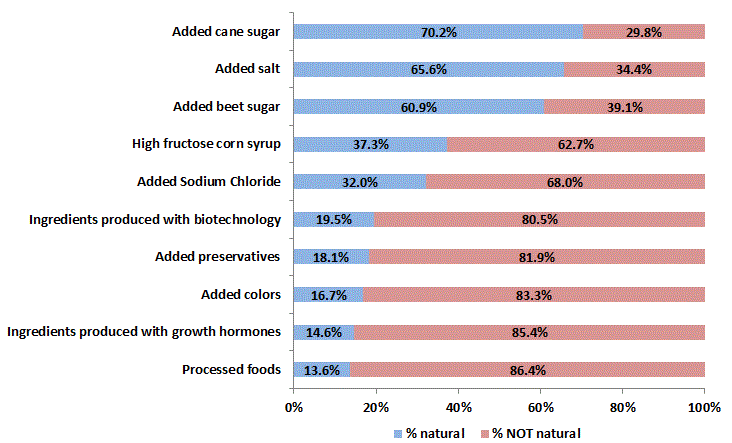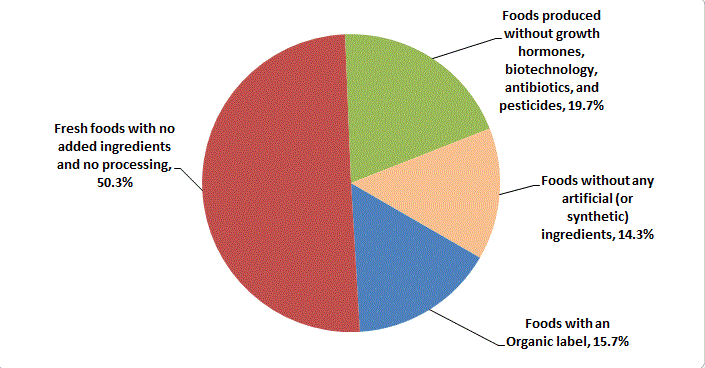A friend sent me a link to a new study in the journal in the Journal of Food Safety. The study shows that 90% of the chicken sold at a farmer's tested positive for Salmonella. By contrast, only 52% of non-organic grocery store chickens and 28% of organic grocery store chickens tested positive for Salmonella. In addition, the study found that for another illness-causing bacteria, Campylobacter, 28% of farmer's market chickens were positive but only 8% of non-organic grocery store chickens and 20% of organic grocery store chicken. So regardless of whether you buy conventional or organic chicken at the grocery store, it is likely safer than that bought at the farmers market (at least the farmers analyzed in this study). For one bacteria (Salmonella), organic is safer, for another (Campylobacter), conventional is safer.
Why is this result interesting? Because the findings are likely to be strongly at odds with most people's beliefs. I suspect (but do not know for sure) that if asked, most people would say they think foods from farmers markets are safer than from grocery stores. They would also likely assert organic is safer than conventional. Yet this evidence (and other studies like it) is at odds with people's beliefs.
I don't have a problem with people eating at farmer's markets. Go for it! But, ideally one should act knowledgeably, knowing full well the risks they're undertaking. And I fear all the hype often causes people to mis-perceive the true benefits and risks of conventional, organic, and local foods.
A similar problem exists with unpasteurized milk (or raw milk). Although it is illegal in many states, many people want to buy unpasteurized milk. Again, I say go for it (as long as they are two consenting adults; kids may be a different story at least if they're not your own). But, let's not be glib about the safety risks. Sure, it might be possible that pasteurization kills some healthy bacteria but it is certainly true, and scientific studies clearly show, that pasteurization kills illness-causing bacteria.
So, why do we have government regulations that ban unpasteurized milk but promote farmer's markets? Maybe the risks are larger or are more well known in one case (raw milk) than the other (farmers market meat). One of the proper roles of government, I believe, is to provide objective-science based information. What people do with that information is up to them. But, it does bother me a bit when certain foods attain a moral status that causes people to under-estimate risks and over-estimate benefits. Kahneman talked about this problem in his book Thinking Fast and Slow: something that seems good is therefore perceived unrisky and vice versa. It also troubled me that many calls for food policies by food activists seem to be based on inaccurate perceptions of risks and benefits.
What does this have to do with motorcycles? Regulations in many states don't allow people to ride without helmets (helmet-less riding is banned) . Clearly, riding a motorcycle without a helmet is risky. How much riskier is it than eating farmers market chickens or drinking unpastuerized milk? I don't know. Strangely, in Oklahoma, we allow motor cycle riding without a helmet. But, sales of raw milk in grocery stores is banned (my understanding is that it can be bought direct from the farm in OK). So, people are presumed smart enough to weigh the risks of riding a motorcycle without a hat but not smart enough to buy raw milk from a grocery store? Seems like a consistent paternalist would outlaw both. Or a consistent libertarian would make both fully legal. Either way, shouldn't we all want the best information to make choices?

